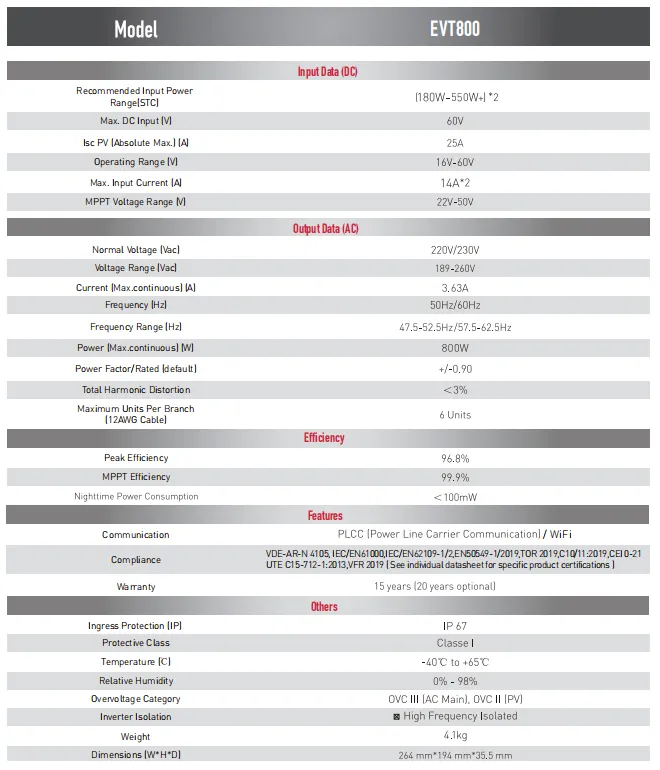Exploring Various Types of Hybrid Inverters and Their Benefits for Renewable Energy Systems
Understanding the Types of Hybrid Inverters
In the rapidly evolving world of renewable energy technology, hybrid inverters have become an essential component in solar power systems. These innovative devices not only convert direct current (DC) generated by solar panels into alternating current (AC) suitable for household use but also manage energy storage systems, optimizing the use of renewable resources. This article delves into the various types of hybrid inverters and their functionalities, benefits, and applications.
What is a Hybrid Inverter?
A hybrid inverter integrates the functionalities of both a grid-tied inverter and a battery inverter. This means it can be connected to the power grid while simultaneously managing energy storage solutions. Hybrid inverters are designed to work with battery systems to store excess electricity generated during peak sunlight hours, allowing users to draw from this energy during periods of low sunlight or at night, thereby increasing energy independence.
Types of Hybrid Inverters
1. Single-Phase Hybrid Inverters Typically used in residential applications, single-phase hybrid inverters can handle smaller loads and are optimized for homes. These inverters can manage energy generation from solar panels and energy storage from batteries, making them ideal for average households that require up to 5 kW of power. They are cost-effective and widely adopted for home solar installations.
2. Three-Phase Hybrid Inverters Designed for larger applications, such as commercial buildings or industrial facilities, three-phase hybrid inverters can balance load across three separate circuits, allowing for greater energy efficiency and higher output. These inverters are capable of managing larger power systems, making them suitable for commercial operations that demand significant energy usage throughout the day.
types of hybrid inverters

3. All-in-One Hybrid Inverters All-in-one hybrid inverters combine the inverter, charger, and controller into a single device. They provide an integrated solution for home energy management, simplifying installation and maintenance. These systems typically come with built-in features that monitor energy consumption, ensuring optimal use of stored energy while integrating seamlessly with solar panels and battery systems.
4. Modular Hybrid Inverters Modular hybrid inverters consist of multiple smaller inverter units that work together. This design allows for the scalability of the system, enabling users to add more units as their energy needs increase. It also offers redundancy, where if one module fails, the others can continue to operate, enhancing reliability in energy supply.
5. Smart Hybrid Inverters These inverters utilize advanced algorithms and machine learning to optimize energy production and consumption dynamically. Smart hybrid inverters can communicate with other home appliances and the grid, automatically adjusting to energy prices and demand. This technology ensures that users can maximize their savings on electricity bills while maintaining a steady supply of energy.
Benefits of Hybrid Inverters
- Energy Efficiency Hybrid inverters optimize the use of renewable energy and stored energy, significantly reducing reliance on grid power. - Cost Savings By storing excess solar energy for later use, users can save on electricity costs, particularly during peak pricing hours. - Reliability In the event of a power outage, hybrid inverters can provide backup power, ensuring that essential appliances remain operational. - Environmental Impact Utilizing solar energy contributes to a reduction in carbon emissions, making hybrid inverters an eco-friendly choice for energy management.
Conclusion
As the demand for renewable energy solutions grows, hybrid inverters represent a versatile and efficient option for maximizing solar energy usage. By understanding the different types of hybrid inverters available, consumers can make informed decisions tailored to their specific energy needs, whether in residential or commercial settings. As technology continues to advance, the capabilities and applications of hybrid inverters are likely to expand, further promoting the shift towards sustainable energy solutions. Embracing these innovations is not just a matter of energy management; it’s a step towards a greener future.
-
String Solar Inverter: The High-Efficiency Solution for Smart Solar EnergyNewsJul.14,2025
-
Revolutionizing Rooftop Energy with the Power of the Micro Solar InverterNewsJul.14,2025
-
Power Independence with Smart Off Grid Solar Inverter SolutionsNewsJul.14,2025
-
On Grid Solar Inverter: Powering the Future with Smart Grid IntegrationNewsJul.14,2025
-
Monocrystalline Solar Panels: High-Efficiency Power for the Future of Clean EnergyNewsJul.14,2025
-
Bifacial Solar Panel: A Smarter Investment for Next-Generation Energy SystemsNewsJul.14,2025







